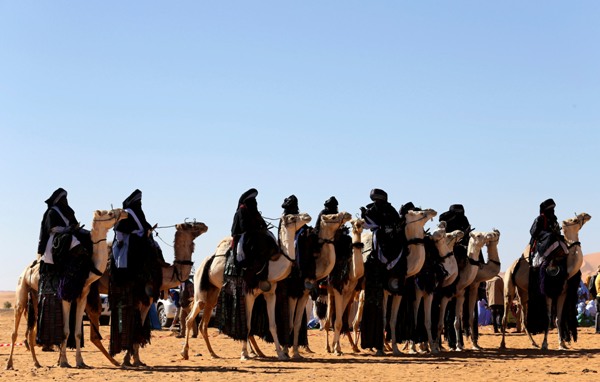REUTERS - Libyan tribes meet in Cairo as Egypt seeks allies against militants

CAIRO, May 25 (Reuters) - Hundreds of Libyan tribal leaders met in Cairo on Monday with Egyptian authorities hoping to enlist their help in preventing Islamist violence from spilling over their shared border.
Islamist militants have thrived in the chaos of Libya, a North African oil producer that now has two competing governments backed by armed factions that four years earlier joined in an uprising that toppled autocrat Muammar Gaddafi.
Egyptian President Abdel Fattah al-Sisi sees ascendant Islamists in Libya as a major security threat and is trying to secure the cooperation of tribal leaders to tackle it.
Analysts say that Sisi would like Arab states to carry out a Yemen-type intervention in Libya to combat Islamic State jihadis and other radical factions that have taken advantage of the lawlessness to recruit and train in the vast desert country.
Egyptian Foreign Minister Sameh Shukri inaugurated the tribal conference, which runs through Thursday, by highlighting the positive role the tribes could play in restoring stability to Libya.
Egypt had invited the tribal leaders to talks because they were the "backbone" of society and main guarantor of Libyan stability, security and territorial integrity, Shukri said.
"Egypt will not hesitate to support her Libyan brothers until they achieve security and reconciliation among themselves," he said.
But achieving consensus among the hundreds of tribal leaders on how to tackle Islamic extremism could be a long process.
Libya's two governments depend on various tribes and militias to support their claims to power.
The country's internationally recognised government, which Egypt backs, has operated out of eastern Libya since a rival armed faction called Libya Dawn seized the capital Tripoli in August and set up its own government.
Analysts said most of the tribes in attendance in Cairo were known supporters of the internationally recognised government, with supporters of its Tripoli-based rival not well represented. (Reporting by Shadi Bushra; Editing by Mark Heinrich)









facebook comments